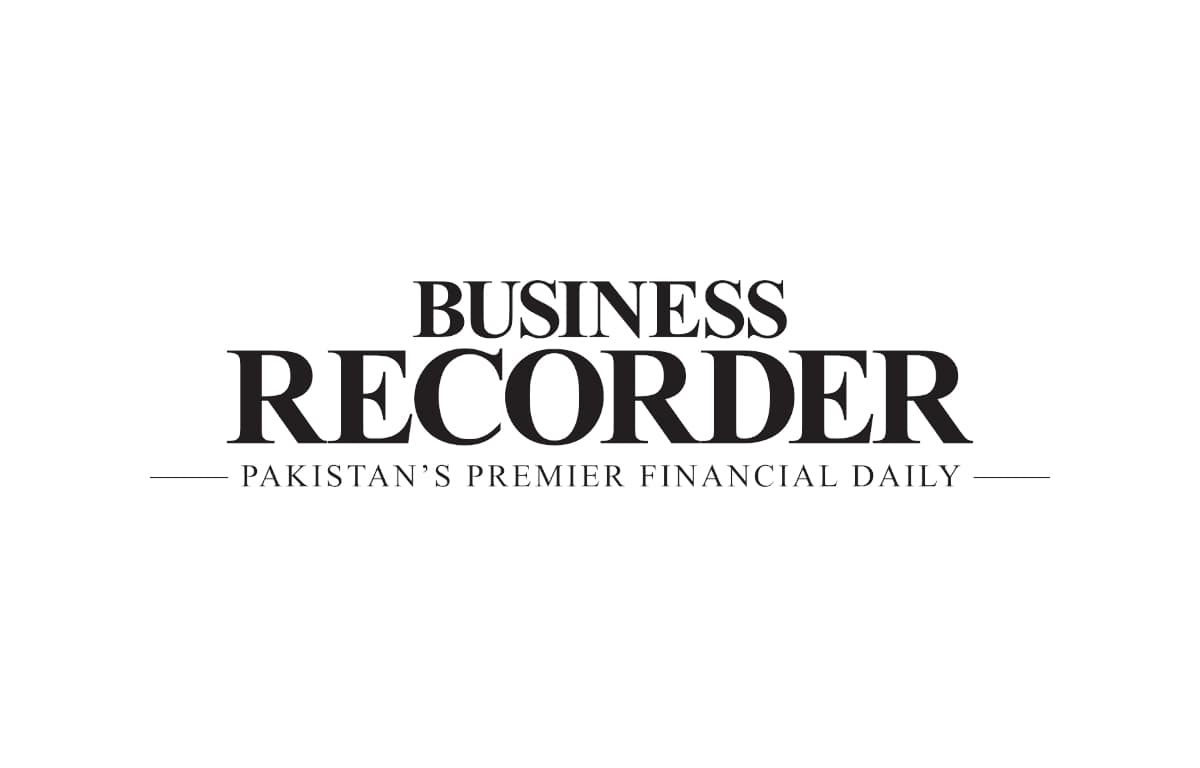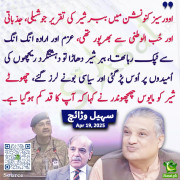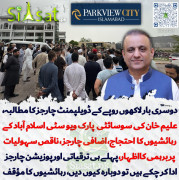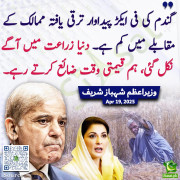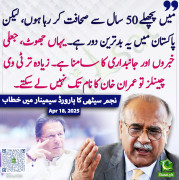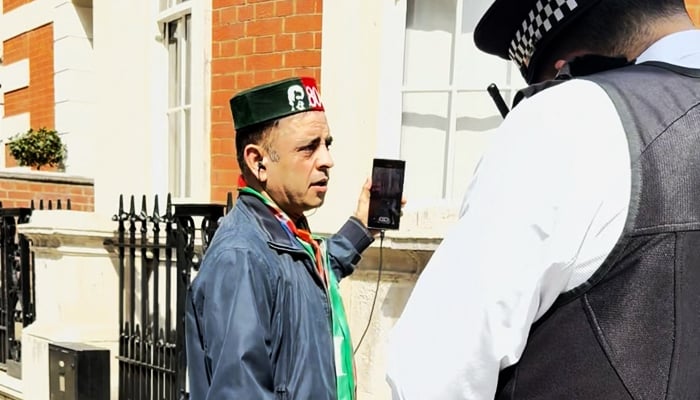Sohail Shuja
Chief Minister (5k+ posts)
The trumpets of the new Trump Tarrifs all blowing over the globe. But this is a necessary overhaul the US economy has to take. The bitter pill to swallow but it has many benefits for the whole world in the end.
The Trump's tarrif regimes are mostly targeting the countries who enjoy higher tarrifs on US imports, but seek tax reliefs for their exports to the US.
The result has to be either an increase in the US exports (other than weapons) or an increased domestic production inside US to substitute imports, or both.
In any of the above cases, the US economy will see a shift from being overly reliant on its weapons export (which requires to wage wars in the world) to a production and services based economy, which does not need to rely on wars for its survival.
Now lets look at Pakistan and how our economy was reshaped from 1970's Nationalization and further onward.
Bhutto destroyed the industrial backbone of Pakistan through his insipid nationalization program.
Afterwards, due to the engagement of Pakistan in Afghan war, since 1979, our economy heavily moved from being a production based economy to a rent seeking economy, who used to sell its people (soldiers/mercenaries) to the international powers for dollars. This persisted throughout 1980s.
In 1990's, our economy saw a total turmoil by the incompetent political governments, that were backed by the establishment, in one way or another. We saw plunder and also the rent stopped flowing in. The results were the IPPs and other major blunders committed in the name of reforming the economy. One very famous program of "Qarz Utaro Mulk Sanwaro" scheme bagged billions of dollars in corruption, which were stashed in the foreign accounts of these stooges of the parliament.
Moreover, in the 1990's, our country saw a major aggression from our traditional rival in the east. After the collapse of USSR and withdrawal of support from the US and a dwindling political and economic scenario, India saw a chance and hence advanced its nefarious designs. At that time, we also saw a need to increase our defence budgets in order to remain at par with our rivals in war readiness. It came upon our survival.
President Musharraf, in early 2000's, tried to reform our economy and boosted domestic industry and services sector. All these CD-70 motorcycles, media channels and private banks came into Pakistan during his tenure. However, the downside remained the destabilized security situation, due to our engagement in the Afghan war again, with the same allies. Big investments were made in the sectors of cement, textile, CNG and other areas of production and manufacturing. However, the destabilization in respect of our security situation marred the boom and we could never really capitalize on the opportunities.
The seeds of terrorism sprouted their twigs over KPK and Baluchistan. This even continued so far as to make CPEC not a game changer, but a game of danger for Pakistan. From 2010 onward, we are on a continuous downward spiral. We are continuously looking for IMF bailouts to make our ends meet and pay for projects like metros and orange line trains, which really have never contributed positively towards our economy.
Imran Khan tried to revive the industrial sector, but failed miserably. Due to the fact that much of his party was composed of "political mercenaries" given to him by the establishment and the rest were from the typical capitalist and feudal background. So, the results were a major blow to his government from inside, whenever he tried to rectify the problems. The Sugar and Flour inquiry reports and his reversed ordinance of sugar mills by the Punjab Government are some examples of the internal mutiny factors that ultimately culminated in to the overthrow of his Government.
Right now, apart from the stigma of a security wise unstable market, Pakistan carries an additional mark of being a politically unstable market as well. This has made the world to think more than twice to invest in Pakistan.
On the other hand, it seems evident from the statistics that further bailouts and funding is in dire jeopardy, if we do not realign our discourse. This requires four things in general:
1- Structural reforms in Bureaucracy, where the budgets should be slashed and efficiency should be increased.
2- Devise a model for Public Private Partnership (PPP) to invest in development projects, rather than investing the borrowed money in them. This will move the local investment and industry too.
3- Secure a regional security partnership with China, in order to curb terrorism, which is sponsored by our neighbors.
4- Call for a mid-term elections and install a legit government in place, in order to secure political stability in the country. This is also linked with the problem of terrorism as well.
The Trump's tarrif regimes are mostly targeting the countries who enjoy higher tarrifs on US imports, but seek tax reliefs for their exports to the US.
The result has to be either an increase in the US exports (other than weapons) or an increased domestic production inside US to substitute imports, or both.
In any of the above cases, the US economy will see a shift from being overly reliant on its weapons export (which requires to wage wars in the world) to a production and services based economy, which does not need to rely on wars for its survival.
Now lets look at Pakistan and how our economy was reshaped from 1970's Nationalization and further onward.
Bhutto destroyed the industrial backbone of Pakistan through his insipid nationalization program.
Afterwards, due to the engagement of Pakistan in Afghan war, since 1979, our economy heavily moved from being a production based economy to a rent seeking economy, who used to sell its people (soldiers/mercenaries) to the international powers for dollars. This persisted throughout 1980s.
In 1990's, our economy saw a total turmoil by the incompetent political governments, that were backed by the establishment, in one way or another. We saw plunder and also the rent stopped flowing in. The results were the IPPs and other major blunders committed in the name of reforming the economy. One very famous program of "Qarz Utaro Mulk Sanwaro" scheme bagged billions of dollars in corruption, which were stashed in the foreign accounts of these stooges of the parliament.
Moreover, in the 1990's, our country saw a major aggression from our traditional rival in the east. After the collapse of USSR and withdrawal of support from the US and a dwindling political and economic scenario, India saw a chance and hence advanced its nefarious designs. At that time, we also saw a need to increase our defence budgets in order to remain at par with our rivals in war readiness. It came upon our survival.
President Musharraf, in early 2000's, tried to reform our economy and boosted domestic industry and services sector. All these CD-70 motorcycles, media channels and private banks came into Pakistan during his tenure. However, the downside remained the destabilized security situation, due to our engagement in the Afghan war again, with the same allies. Big investments were made in the sectors of cement, textile, CNG and other areas of production and manufacturing. However, the destabilization in respect of our security situation marred the boom and we could never really capitalize on the opportunities.
The seeds of terrorism sprouted their twigs over KPK and Baluchistan. This even continued so far as to make CPEC not a game changer, but a game of danger for Pakistan. From 2010 onward, we are on a continuous downward spiral. We are continuously looking for IMF bailouts to make our ends meet and pay for projects like metros and orange line trains, which really have never contributed positively towards our economy.
Imran Khan tried to revive the industrial sector, but failed miserably. Due to the fact that much of his party was composed of "political mercenaries" given to him by the establishment and the rest were from the typical capitalist and feudal background. So, the results were a major blow to his government from inside, whenever he tried to rectify the problems. The Sugar and Flour inquiry reports and his reversed ordinance of sugar mills by the Punjab Government are some examples of the internal mutiny factors that ultimately culminated in to the overthrow of his Government.
Right now, apart from the stigma of a security wise unstable market, Pakistan carries an additional mark of being a politically unstable market as well. This has made the world to think more than twice to invest in Pakistan.
On the other hand, it seems evident from the statistics that further bailouts and funding is in dire jeopardy, if we do not realign our discourse. This requires four things in general:
1- Structural reforms in Bureaucracy, where the budgets should be slashed and efficiency should be increased.
2- Devise a model for Public Private Partnership (PPP) to invest in development projects, rather than investing the borrowed money in them. This will move the local investment and industry too.
3- Secure a regional security partnership with China, in order to curb terrorism, which is sponsored by our neighbors.
4- Call for a mid-term elections and install a legit government in place, in order to secure political stability in the country. This is also linked with the problem of terrorism as well.
- Featured Thumbs
- https://live.staticflickr.com/3519/3831952598_ea9cc6696b_b.jpg


